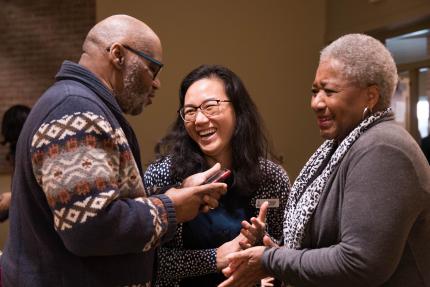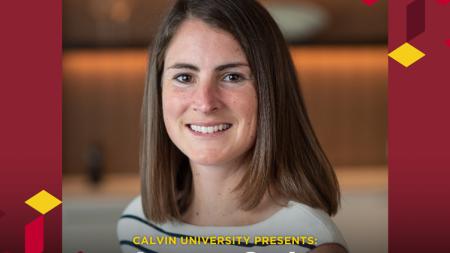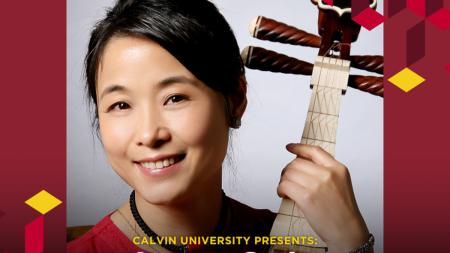SheLeads Summit Charts Progress of Women in Ministry

Christianne Zeiger, Calvin Seminary
One woman choked up as she spoke of the male pastor she has known for many years who is shunning her now that she has answered a call from God to attend Calvin Theological Seminary. She was one of several women who shared personal stories during a table discussion time at the SheLeads Church Together Summit 2018 held Fri., Nov. 30, at Calvin Theological Seminary in Grand Rapids, Mich.
Another woman, a commissioned pastor in the Christian Reformed Church in North America, was also near tears as she talked of how a male pastor would give her permission to preach only as long as he could first approve her sermon.
Yet another woman discussed the challenge of attending CRC classis meetings and having to tread lightly, because she often has no idea if the men in the classis are theologically for or against women serving as ministers in the denomination — and, as a result, how they will react to her being there as a leader.
“All of us have a story to tell,” said Denise Posie, director of leadership development for women’s and ethnic ministry in the CRC. In her role supporting women’s leadership, Posie sees men and women struggling to figure out how best to use women’s gifts in leadership. This is especially challenging because the Christian Reformed Church affirms two different perspectives and convictions on the issue of women in ordained church office, stating that both perspectives honor Scripture as the infallible Word of God.
“It has been a long journey, but we are on our way together,” said Posie.
The local SheLeads gathering was part of a larger summit sponsored by the Missio Alliance that took place Nov. 10 in Pasadena, Calif. Main speakers from the Missio Alliance event were shown in videos at the seminary event.
These presenters included Oneya Fennell Okuwobi, a founding elder at 21st Century Church in Indianapolis, Ind.; Jo Saxton, author of such books as High Heels and Holiness: The Smart Girl’s Guide to Living Life Well; and Mark Labberton, president of Fuller Theological Seminary.
Speaking to the broader challenge of leadership in the Christian church, Labberton said the American church has a narrow focus, choosing to be comfortable rather than to change long-held practices. Unwilling to uproot practices that no longer work and to seek security instead of innovation, many churches either overtly or subtly keep women and their gifts in the background.
This happens in churches where women are permitted to hold ordained roles and also in churches where women hold other types of leadership roles.
“The tragedy is that we lose imaginative character and the love of God when we do this,” said Labberton.
Too many churches these days, he said, prefer safety to seeking the world-changing movement that comes with embracing the kingdom of God -- and all of the people in the kingdom. “The kingdom of God is what cracks open the universe,” said Labberton. “This is where the expansiveness takes place. [The kingdom of God] is at the core of the Christian religion.”
There is an abuse of power by men of women, he said, that fosters a kind of inner groaning in people who want women to find their place as leaders in the church. “We foster suffering in others in order to avoid our own pain,” said Labberton.
Jo Saxton addressed this in her presentation as well. “Our identities were created in God so we could represent God in the world. We have been aching ever since; we have paid a high price for not living into that reality.”
Oneya Okuwobi encouraged women to reclaim their emotions: “We need emotion attached to our disappointments to move away from apathy. We must not close our hearts to our God, who shapes and changes and moves things.”
Gary Burge, a New Testament scholar at Calvin Seminary and moderator for the Michigan panel discussion, said he was in his first year of teaching in 1992 at Wheaton (Ill.) College when a student took him aside and asked if he really thought women could be preachers.
“Women in leadership and ministry were part of a very delicate conversation in those days,” said Burge. “We had students coming to Wheaton from all over the U.S. and they brought with them many opinions [on this topic].”
At the same time, Wheaton serves as a case study on the changes women in ministry have seen over the past three decades. When he started at Wheaton, said Burge, women were not in leadership roles. But today the school has two New Testament professors, two Old Testament professors, two theology professors, an academic dean, and a provost who are women.
Growing up as a Baptist in Mississippi, Emmett Harrison was taught that “women were not welcome in leadership positions in church circles, especially not in preaching,” he said.
“The church didn’t recognize that God has gifted women to serve the church,” said Harrison, pastor of Oakdale Park CRC in Grand Rapids and one of the panelists.
While serving in ministry in Chicago, Harrison said, he began to see the matter differently. Scripture, he believes, shows clear roads for women to take into assuming leadership roles in the church.
Today, half of the staff at his church are women. This includes women in the roles of children’s ministry director and youth ministry director.
“We would be bankrupt without the participation of women who do leadership in a way that men could never hold a candle to,” said Harrison.
Amy Schenkel, U.S. National Director and Great Lakes Regional mission leader for Resonate Global Mission, finds herself frequently sitting in meetings in which she is one of few women, if not the only woman. “This has been true for as long as I remember,” she said.
There are times in meetings when a woman offers an idea, but it won’t get affirmed until a man picks up on it. “This continues to be an area we need to work on together,” said Posie.
Mary Ma, a research fellow at the Henry Institute for the Study of Christianity and Politics at Calvin College, is most closely aware of the power dynamics between men and women in the church in her homeland of China. At first, she said, she found a fair amount of room for women in leadership when she was working with her husband in the house church movement in China.
But then, as the movement became more popular and more organized, men assumed leadership roles and left women out of the picture. Ma is working on a book titled Daughters of God: Christianity, Femininity, and Social Change in Contemporary Urban China.
Ma said the church suffers when the gifts of women are ignored. “When you bring people from different backgrounds together, we can collaborate and rely on one another.”
Schenkel added, “Women bring so much to the table in terms of emotional IQ. Women might be able to see how things affect people in a congregation, and that can help all of us.”
Geoff Vandermolen, director of vocational formation at Calvin Seminary, spoke of the need for men and women to work together in ways in which they are honest and open and to encourage each other to become the leaders God wants them to be.
“Remember, it can’t be left to women to solve the issues. Men need to help. There are moments,” said Vandermolen, “when men need to stand up and call out what is inappropriate.”


